Musical masteros
Zubin Mehta (Mastero)-Western Classical
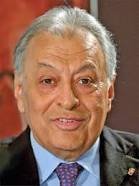 Zubin Mehta is an Indian conductor of Western classical music. He is music director emeritus of the Israel Philharmonic Orchestra and conductor emeritus of the Los Angeles Philharmonic. Mehta's father was the founder of the Bombay Symphony Orchestra, and Mehta received his early musical education from him.
Zubin Mehta is an Indian conductor of Western classical music. He is music director emeritus of the Israel Philharmonic Orchestra and conductor emeritus of the Los Angeles Philharmonic. Mehta's father was the founder of the Bombay Symphony Orchestra, and Mehta received his early musical education from him.Zubin Mehta (born 29 April 1936) is an Indian conductor of Western classical music. He is music director emeritus of the Israel Philharmonic Orchestra (IPO) and conductor emeritus of the Los Angeles Philharmonic.
Mehta's father was the founder of the Bombay Symphony Orchestra, and Mehta received his early musical education from him. When he was 18, he enrolled in the Vienna state music academy, from which he graduated after three years with a diploma as a conductor. He began winning international competitions and conducted the Royal Liverpool Philharmonic at age 21. Beginning in the 1960s, Mehta gained experience by substituting for celebrated maestros throughout the world.
Mehta was music director of the Montreal Symphony Orchestra from 1961 to 1967 and of the Los Angeles Philharmonic from 1962 to 1978, the youngest music director ever for any major North American orchestra. In 1969, he was appointed Music Adviser to the Israel Philharmonic Orchestra and in 1981 he became its Music Director for Life. From 1978 to 1991, Mehta was music director of the New York Philharmonic. He was chief conductor of the Maggio Musicale Fiorentino in Florence from 1985 to 2017.
He is an honorary citizen of both Florence and Tel Aviv and was made an honorary member of the Vienna State Opera in 1997 and of the Bavarian State Opera in 2006. The title of Honorary Conductor was bestowed on him by numerous orchestras throughout the world. More recently, Mehta made several tours with the Bavarian State Opera and kept up a busy schedule of guest conducting appearances. In December 2006, he received the Kennedy Center Honor and in October 2008 he was honored by the Japanese Imperial Family with the Praemium Imperiale. In 2016, Mehta was appointed Honorary Conductor of the Teatro San Carlo, Naples.
Barbra Streisand
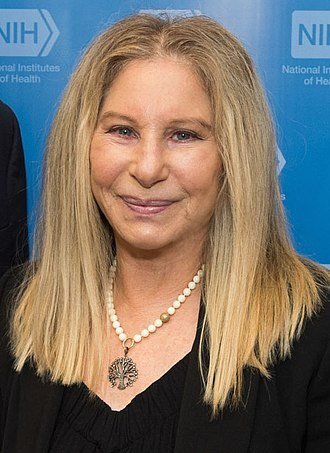
Barbara Joan "Barbra" Streisand (/ˈstraɪsænd/; born April 24, 1942) is an American singer and actress. With a career spanning over six decades, she has achieved success in multiple fields of entertainment, and is among the few performers awarded an Emmy, Grammy, Oscar, and Tony (EGOT).
Streisand began her career by performing in nightclubs and Broadway theaters in the early 1960s. Following her guest appearances on various television shows, she signed to Columbia Records, insisting that she retain full artistic control, and accepting lower pay in exchange, an arrangement that continued throughout her career, and released her debut The Barbra Streisand Album (1963), which won the Grammy Award for Album of the Year. Throughout her recording career, Streisand has topped the US Billboard 200 chart with 11 albums—a record for a woman—including People (1964), The Way We Were (1974), Guilty (1980), and The Broadway Album (1985).She also achieved five number-one singles on the US Billboard Hot 100—"The Way We Were", "Evergreen", "You Don't Bring Me Flowers", "No More Tears (Enough Is Enough)", and "Woman in Love".
Following her established recording success in the 1960s, Streisand ventured into film by the end of that decade. She starred in the critically acclaimed Funny Girl (1968), for which she won the Academy Award for Best Actress. Additional fame followed with films including the extravagant musical Hello, Dolly! (1969), the screwball comedy What's Up, Doc? (1972), and the romantic drama The Way We Were (1973). Streisand won a second Academy Award for writing the love theme from A Star Is Born (1976), the first woman to be honored as a composer. With the release of Yentl (1983), Streisand became the first woman to write, produce, direct, and star in a major studio film.The film won an Oscar for Best Score and a Golden Globe for Best Motion Picture Musical. Streisand also received the Golden Globe Award for Best Director, becoming the first (and for 37 years, the only) woman to win that award. Streisand later directed The Prince of Tides (1991) and The Mirror Has Two Faces (1996).
With sales exceeding 150 million records worldwide, Streisand is one of the best-selling recording artists of all time. According to the Recording Industry Association of America (RIAA), she is the second highest-certified female artist in the United States, with 68.5 million certified album units. Billboard ranked Streisand as the greatest female artist on the Billboard 200 chart and the top Adult Contemporary female artist of all time. Her accolades include two Academy Awards, 10 Grammy Awards including the Grammy Lifetime Achievement Award and the Grammy Legend Award, five Emmy Awards, four Peabody Awards, the Presidential Medal of Freedom, and nine Golden Globes.
Aged 16 and living on her own, Streisand took various menial jobs to have some income. During one period, she lacked a permanent address, and found herself sleeping at the home of friends or anywhere else she could set up the army cot she carried around. When desperate, she returned to her mother's flat in Brooklyn for a home-cooked meal. However, her mother was horrified by her daughter's "gypsy-like lifestyle", wrote biographer Karen Swenson, and again begged her to give up trying to get into show business,[25]: 6 but Streisand took her mother's pleadings as even more reason to keep trying: "My desires were strengthened by wanting to prove to my mother that I could be a star."
She took a job as an usher at the Lunt-Fontanne Theater for The Sound of Music early in 1960. During the run of the play, she heard that the casting director was auditioning for more singers, and it marked the first time she sang in pursuit of a job.: 6 Although the director felt she was not right for the part, he encouraged her to begin including her talent as a singer on her résumé when looking for other work.
She asked her boyfriend, Barry Dennen, to tape her singing, copies of which she could then give out to possible employers. Dennen found a guitarist to accompany her:
We spent the afternoon taping, and the moment I heard the first playback I went insane ... This nutty little kook had one of the most breathtaking voices I'd ever heard ... when she was finished and I turned off the machine, I needed a long moment before I dared look up at her.:
Dennen grew enthusiastic and he convinced her to enter a talent contest at the Lion, a gay nightclub in Manhattan's Greenwich Village. She performed two songs, after which there was a "stunned silence" from the audience, followed by "thunderous applause" when she was pronounced the winner.. She was invited back and sang at the club for several weeks. It was during this time that she dropped the second "a" from her first name, switching from "Barbara" to "Barbra", due to her dislike of her original name.
In the early days Streisand was repeatedly told she was too ugly to be a star and advised to get a nose job, which she did not do.
Nightclub shows
Streisand was next asked to audition at the Bon Soir nightclub, after which she was signed up at $125 a week. It became her first professional engagement in September 1960, where she was the opening act for comedian Phyllis Diller. She recalls it was the first time she had been in that kind of upscale environment: "I'd never been in a nightclub until I sang in one."
Dennen now wanted to expose Streisand to his vast record collection of female singers, including Billie Holiday, Mabel Mercer, Ethel Waters, and Édith Piaf. Streisand realized she could still become an actress by first gaining recognition as a singer. According to biographer Christopher Nickens, hearing other great female singers benefited her style, as she began creating different emotional characters when performing, which gave her singing a greater range.
She improved her stage presence when speaking to the audience between songs. She discovered that her Brooklyn-bred style of humor was received favorably.During the next six months appearing at the club, some began comparing her singing voice to famous names such as Judy Garland, Lena Horne and Fanny Brice. Her conversational ability to charm an audience with spontaneous humor during performances became more sophisticated and professional. Theater critic Leonard Harris wrote: "She's twenty; by the time she's thirty she will have rewritten the record books.
First albums
When she was 21, Streisand signed a contract with Columbia Records that gave her full creative control, in exchange for less money.
Lieberson relented and agreed to sign her. Nearly three decades later, Streisand said:
The most important thing about that first contract – actually, the thing we held out for – was a unique clause giving me the right to choose my own material. It was the only thing I really cared about. I still received lots of pressure from the label to include some pop hits on my first album, but I held out for the songs that really meant something to me.
She took advantage of this several times during her career.
Columbia wanted to call her first album, in early 1963, Sweet And Saucy Streisand; Streisand used her control to insist that it was called The Barbra Streisand Album, saying "if you saw me on TV, you could just go [to the record shop] and ask for the Barbra Streisand album. It's common sense". It reached the top 10 on the Billboard chart and won three Grammy Awards.[25]: 11 The album made her the best-selling female vocalist in the country.: 11 That summer she also released The Second Barbra Streisand Album, which established her as the "most exciting new personality since Elvis Presley.": 11 She ended that breakthrough year of 1963 by performing one-night concerts in Indianapolis, San Jose, Chicago, Sacramento, and Los Angeles.
Luciano Pavarotti- Opera
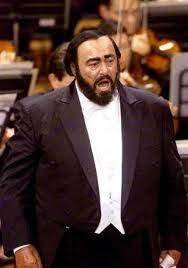
Luciano Pavarotti Cavaliere di Gran Croce OMRI (/ˌpævəˈrɒti/, US also /ˌpɑːv-/, Italian: [luˈtʃaːno pavaˈrɔtti]; 12 October 1935 – 6 September 2007) was an Italian operatic tenor who during the late part of his career crossed over into popular music, eventually becoming one of the most acclaimed and loved tenors of all time. He made numerous recordings of complete operas and individual arias, gaining worldwide fame for his tone, and achieving the honorific title "King of the High Cs".
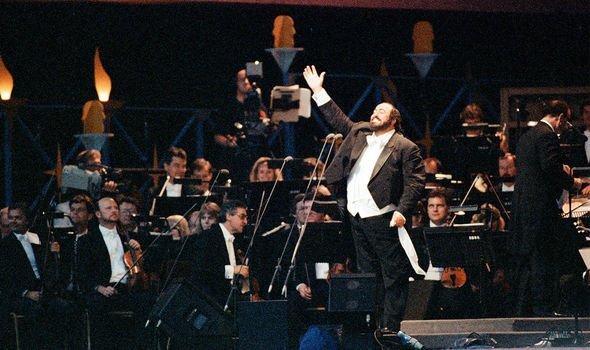 As one of the Three Tenors, who performed their first concert during the 1990 FIFA World Cup before a global audience, Pavarotti became well known for his televised concerts and media appearances. From the beginning of his professional career as a tenor in 1961 in Italy to his final performance of "Nessun dorma" at the 2006 Winter Olympics in Turin, Pavarotti was at his best in bel canto operas, pre-Aida Verdi roles, and Puccini works such as La bohème, Tosca, Turandot and Madama Butterfly.
As one of the Three Tenors, who performed their first concert during the 1990 FIFA World Cup before a global audience, Pavarotti became well known for his televised concerts and media appearances. From the beginning of his professional career as a tenor in 1961 in Italy to his final performance of "Nessun dorma" at the 2006 Winter Olympics in Turin, Pavarotti was at his best in bel canto operas, pre-Aida Verdi roles, and Puccini works such as La bohème, Tosca, Turandot and Madama Butterfly.He sold over 100 million records, and the first Three Tenors recording became the best-selling classical album of all time. Pavarotti was also noted for his charity work on behalf of refugees and the Red Cross, amongst others. He died from pancreatic cancer on 6 September 2007.
Bhimsen Joshi
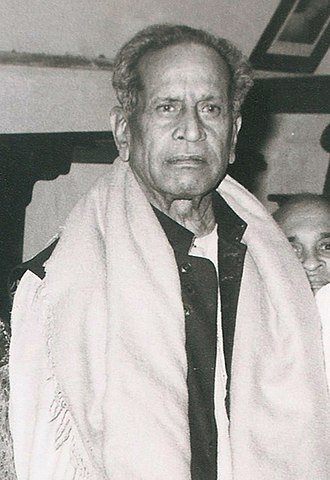
Pandit Bhimsen Gururaj Joshi; BHEEM-SAYN joe-SHEE; 4 February 1922 – 24 January 2011), also known by the honorific prefix Pandit, was one of the greatest Indian vocalists from India, in the Hindustani classical tradition. He is known for the khayal form of singing, as well as for his popular renditions of devotional music (bhajans and abhangs).
Joshi belongs to the Kirana gharana tradition of Hindustani Classical Music. He is noted for his concerts, and between 1964 to 1982 Joshi toured Afghanistan, Italy, France, Canada and USA. He was the first musician from India whose concerts were advertised through posters in New York City. Joshi was instrumental in organising the Sawai Gandharva Music Festival annually, as homage to his guru, Sawai Gandharva.
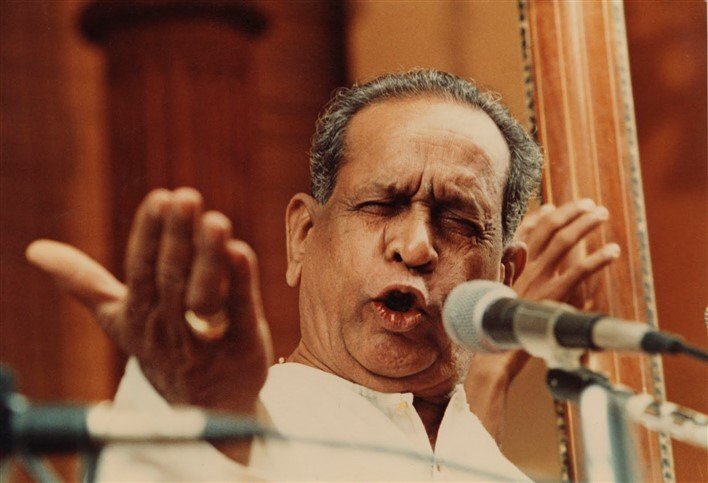
In 1998, he was awarded the Sangeet Natak Akademi Fellowship, the highest honour conferred by Sangeet Natak Akademi, India's National Academy for Music, Dance and Drama. Subsequently, he received the Bharat Ratna, India's highest civilian honour, in 2009.
Late Pt. Acharya Vishwanath Rao Ringe
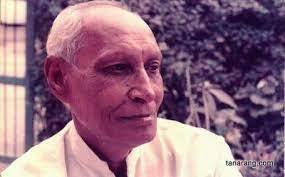
Late Pt. Acharya Vishwanath Rao Ringe 'Tanarang' born on 6 December 1922 was a Hindustani Classical Music vocalist and composer. He belonged to Gwalior Gharana of Hindustani Classical Music. He composed more than 2000 bandishs in about 200 ragaas, for which he has been enlisted in Limca Book of Records. He wrote couple of books in past named 'Sangitanjali' and 'Swaranjali' and a recent book `Aacharya "Tanarang" ki Bandishen` was published.
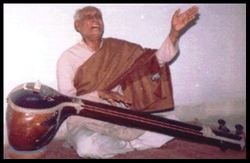
Pt. Ringe was the disciple of late Pandit Krishnarao Pandit of Gwalior gharana. He started learning music from his childhood. He received rigorous and intensive training and full guidance as a performer Khyal Gayakee, in Gwalior Gharana style. In 1939, he established a music school named Bhartiya Sangeet Kala Mandir.
More than 2000 compositions in about 200 raagas, have been composed in various Talas. Viz... Ektal, Deepchandi, Tritala, Tilwada, Chanchar, Dadra, Keharva, Jhaptala, Ada-Choutal, Roopak etc. Pt Ringe had himself composed a Raga Hemashri, which he has Rendered in All India Radio (AIR) Programme.
His compositions include Bada Khyal, Chota Khyal, Chaturang, Tarana, Sadra, Sargam, Tillana, Sur Sagar. Sur Sagar is a unique composition, in which the lyrics are same as the notes.
M. Balamurali krishna
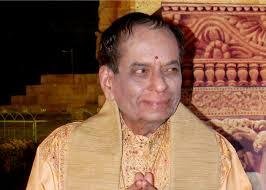
Mangalampalli Balamuralikrishna (6 July 1930 – 22 November 2016) was an Indian Carnatic vocalist, musician, multi-instrumentalist, playback singer, composer, and character actor. He was awarded the Madras Music Academy's Sangeetha Kalanidhi in 1978. He has garnered two National Film Awards (1976, 1987), the Sangeet Natak Akademi Award in 1975, the Padma Vibhushan, India's second-highest civilian honor in 1991, for his contribution towards arts, the Mahatma Gandhi Silver Medal from UNESCO in 1995, the Chevalier of the Ordre des Arts et des Lettres by the French Government in 2005, the Sangeetha Kalanidhi by Madras Music Academy, and the Sangeetha Kalasikhamani in 1991, by the Fine Arts Society, Chennai to name a few.
Balamurali krishna started his career at the age of six. In his life-time, he gave over 25,000 concerts worldwide. Apart from Pandit Bhimsen Joshi, he presented jugalbandi concerts (duets) with Pandit Hariprasad Chaurasia, Pandit Ajoy Chakrabarty and Kishori Amonkar, among others. He is also known for popularizing the compositions of Sri Bhadrachala Ramadasu, Sri Annamacharya, and others.
Balamuralikrishna's concerts combined sophisticated vocal skills and rhythmic patterns of classical music with the popular demand for entertainment value. Balamurali krishna presented concerts in many countries, including the US, Canada, UK, Italy, France, Russia, Sri Lanka, Malaysia, Singapore, countries in the Middle East, and elsewhere. Apart from his native tongue, Telugu, he has also composed in other languages including Kannada, Sanskrit, Tamil, Malayalam, Hindi, Bengali, and Punjabi.
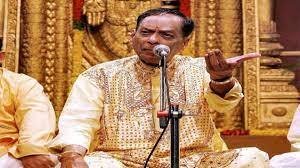
He appeared as a featured soloist with an award-winning British choir, performing the "Gitanjali Suite" with words from Rabindranath Tagore's Nobel Prize-winning poetry and music by "Dr. Joel", the noted UK-based Goan composer. His clear diction in several languages prompted an invitation to record Tagore's entire Rabindra Sangeet compositions in Bengali, preserving them for posterity. He had sung in French, and even ventured into jazz fusion, collaborating with the top Carnatic percussion teacher, Sri T.H. Subash Chandran, in a concert for Malaysian royalty.
Ravi Shankar
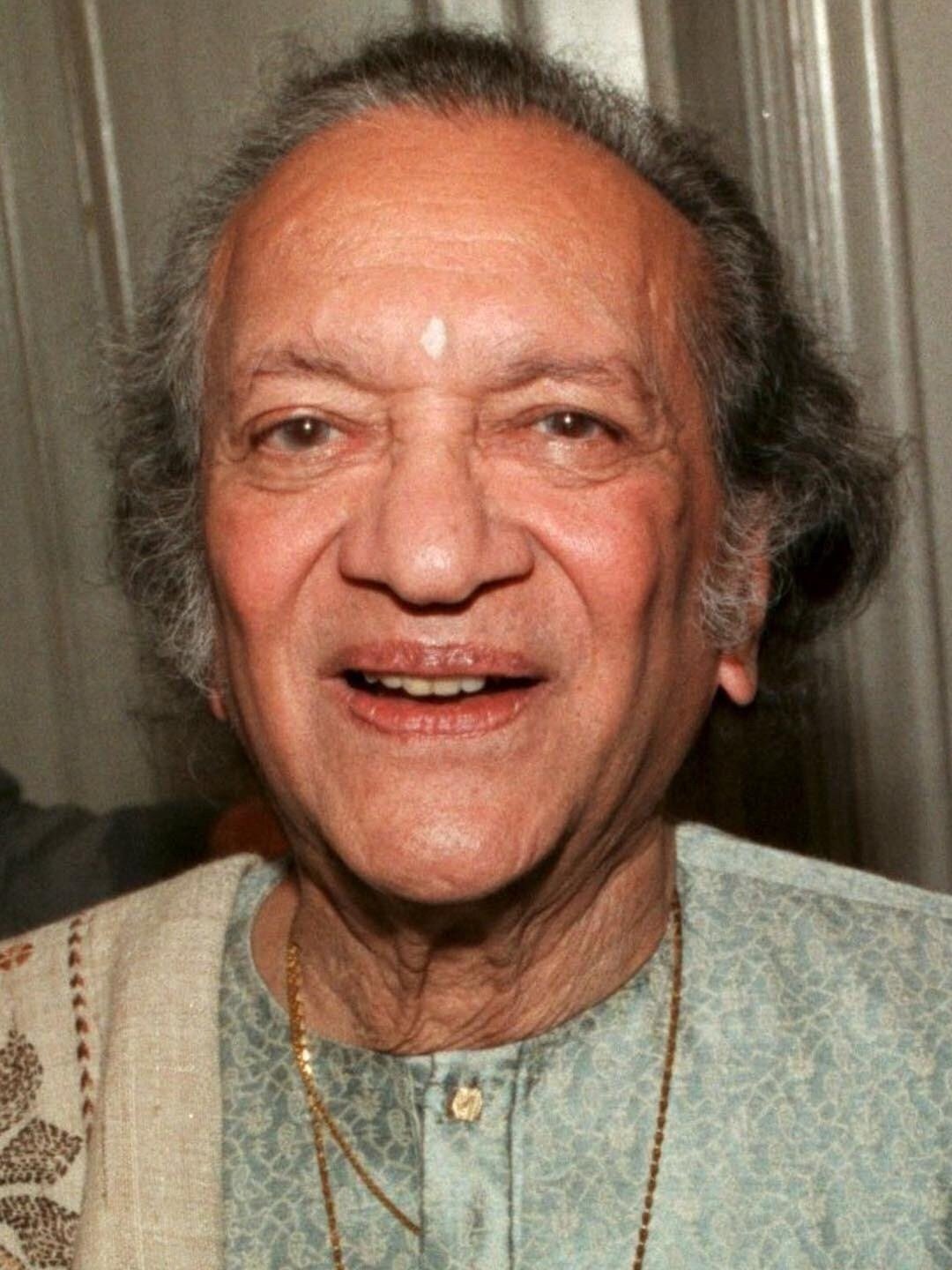
Ravi Shankar KBE (Bengali pronunciation: [ˈrobi ˈʃɔŋkor]; রবি শঙ্কর born Robindro Shaunkor Chowdhury, sometimes spelled as Rabindra Shankar Chowdhury; 7 April 1920 – 11 December 2012) was an Indian sitarist and composer. A sitar virtuoso, he became the world's best-known export of North Indian classical music in the second half of the 20th century, and influenced many musicians in India and throughout the world. Shankar was awarded India's highest civilian honour, the Bharat Ratna, in 1999.
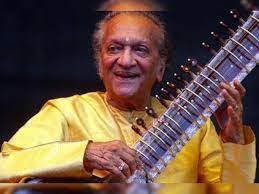
Shankar was born to a Bengali Brahmin family in India, and spent his youth as a dancer touring India and Europe with the dance group of his brother Uday Shankar. He gave up dancing in 1938 to study sitar playing under court musician Allauddin Khan. After finishing his studies in 1944, Shankar worked as a composer, creating the music for the Apu Trilogy by Satyajit Ray, and was music director of All India Radio, New Delhi, from 1949 to 1956.
In 1956, Shankar began to tour Europe and the Americas playing Indian classical music and increased its popularity there in the 1960s through teaching, performance, and his association with violinist Yehudi Menuhin and Beatles guitarist George Harrison. His influence on Harrison helped popularize the use of Indian instruments in Western pop music in the latter half of the 1960s. Shankar engaged Western music by writing compositions for sitar and orchestra, and toured the world in the 1970s and 1980s. From 1986 to 1992, he served as a nominated member of Rajya Sabha, the upper chamber of the Parliament of India. He continued to perform until the end of his life.
Hariprasad Chaurasia
Hariprasad Chaurasia (born 1 July 1938) is an Indian music director and classical flautist, who plays the flute, in the Hindustani classical tradition.
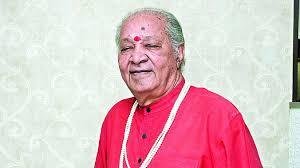
Chaurasia started learning vocal music from his neighbour, Rajaram, at the age of 15. Later, he switched to playing the flute under the tutelage of Bholanath Prasanna of Varanasi for eight years. He joined the All India Radio, Cuttack, Odisha in 1957 and worked as a composer and performer. Much later, while working for All India Radio, he received guidance from the reclusive Annapurna Devi, daughter of Baba Allaudin Khan. She only agreed to teach him if he was willing to unlearn all that he had learnt until then.
Another version is that she only agreed to teach him after he took the decision to switch from right-handed to left-handed playing to show her his commitment. In any case Chaurasia plays left-handed to this day.
Apart from classical music, Hariprasad has collaborated with Shivkumar Sharma, forming a group called Shiv-Hari. The pair composed music for many popular movies, including Silsila and Chandni, and created some highly popular songs. Chaurasia also collaborated with Bhubaneswar Mishra, forming the pair "Bhuban-Hari" (in line with Shiv-Hari), and the pair composed music for many Odia movies, creating numerous songs that were hugely popular in the state. These include Muje janena kaha baata (sung by Suman Kalyanpur; movie: Gapa helebi Sata); and all songs from Maa o Mamata, and many more.
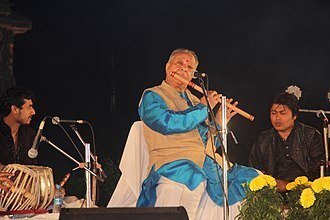
Chaurasia's nephew and pupil Rakesh Chaurasia is a highly accomplished flautist now, and has been performing globally with such eminent maestros as Ustad Zakir Hussain.
He serves as the artistic director of the World Music Department at the Rotterdam Music Conservatory in the Netherlands[citation needed]. He was also the founder of the Vrindavan Gurukul in Mumbai (opened 2006) and Vrindavan Gurukul in Bhubaneshwar (opened 2010). Both of these institutes are schools dedicated to training students in bansuri in the Guru-shishya tradition.
He has collaborated with several western musicians, including John McLaughlin, Jan Garbarek, and Ken Lauber, and has composed music for Indian films. Chaurasia also played on The Beatles' 1968 B-side "The Inner Light", which was written by George Harrison. He also played with George Harrison on his first solo release, Wonderwall Music, and with Harrison, Ravi Shankar and others on the Dark Horse Records release Shankar Family & Friends.
K. J. Yesudas- Indian Classical
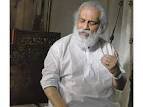
Kattassery Joseph Yesudas (born 10 January 1940) is an Indian playback singer and musician who sings Indian classical, devotional and film songs. He is widely regarded as one of the greatest singers in the history of Indian Music and also as a cultural icon of Kerala. Yesudas is estimated to have recorded more than 50,000 songs in various Indian languages, including Malayalam, Tamil, Kannada, Telugu, Hindi, Odia, Bengali, Marathi as well as Arabic, English, Latin, and Russian, in a career spanning six decades.He is often referred to as Gaanagandharvan (transl. The Celestial Singer). He is one of the highly acclaimed singers in India. Yesudas holds the record for singing 11 songs in different languages in a single day. He has also composed a number of Malayalam film songs during the 1970s and 1980s.
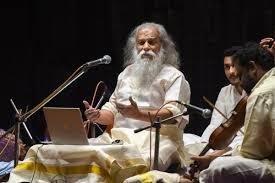
Yesudas won the National Award for the Best Male Playback Singer record eight times, the Filmfare Awards South five times, and the State Award for the Best Playback Singer forty-three times, including awards given by the state governments of Kerala, Tamil Nadu, Andhra Pradesh, Karnataka, and West Bengal. He was awarded the Padma Shri in 1975, the Padma Bhushan in 2002, and the Padma Vibhushan (second-highest civilian award) in 2017 by the Government of India for his contributions towards the arts. In 2005, he was honoured with the J. C. Daniel Award, Kerala government's highest honour for contributions to Malayalam cinema. In 2011 Yesudas was honoured with the CNN-IBN outstanding achievement award for his contributions in the music field. In 2006, he sang 16 film songs in four South Indian languages on the same day at AVM Studio, Chennai.
Hari Om Sharan- Indian Classical
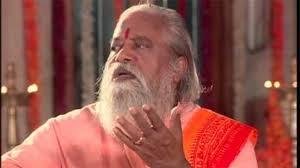
Hari Om Sharan (26 September 1932 – 18 December 2007) was an Indian Hindu devotional singer and lyricist. He devoted most of his career to singing devotional songs in praise of Sita, Rama, and Hanuman. As a Bhajan singer in the 1970s he recorded albums such as Premanjali Pushpanjali, and Daata Ek Ram. His bhajans namely 'Tera Ram ji Karenge Bedaa Paar', 'Maili Chadar Odhke Kaise', 'Aarti Kunj Bihari ki', 'Aisa Pyar Bahaa De Maiyya', 'Shree Radhey Govinda', 'Hanuman Chalisa', 'Govind Jai Jai Gopal Jai Jai' are very popular amongst devotees around the world. During his devotional recordings spanning over 35 years, he released over 20 Bhajan albums.
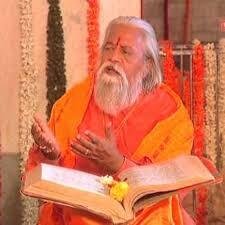
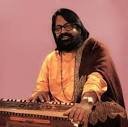
Anup Jalota- Indian Classical
Anup Jalota, (born 29 July 1953) is an Indian singer, musician and actor, best known for his contributions to the Bhajan genre of Indian Music. He is popularly known as the "Bhajan Samraat" (Emperor of Bhajans).Padma Shri was conferred upon him by Government of India in 2012.
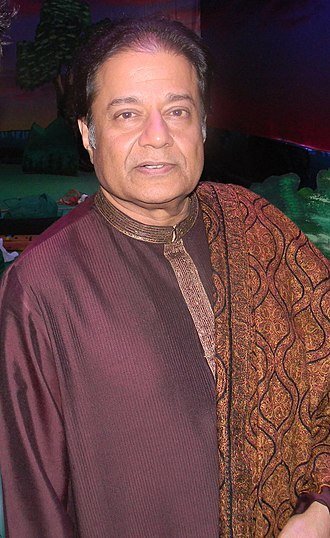
Jalota started his musical career as a chorus singer in All India Radio. He is usually backed by a santoor player, dholak player, sarod player, sarangi player, violinist, sitar player, tabla player and guitarist. Some of his popular bhajans include Aisi Lagi Lagan, Main Nahi Makhan Khayo, Rang De Chunariya, Jag Me Sundar Hai Do Naam, and Chadariya Jhini Re Jhini. He was also the presenter of the program Dharam Aur Hum, telecast in Star Plus from 2002 to 2005. He met Jagadguru Shree Kripaluji Maharaj in Mumbai and agreed to release several CDs of his compositions. In 2008 he recorded the title song "Golden Memorable Yaadein" for the CD "Noorani Chehra", produced by Shaukat (Sam) Kassam to commemorate the Golden Jubilee of the Aga Khan.
Bhupen Hazarika- Indian Classical
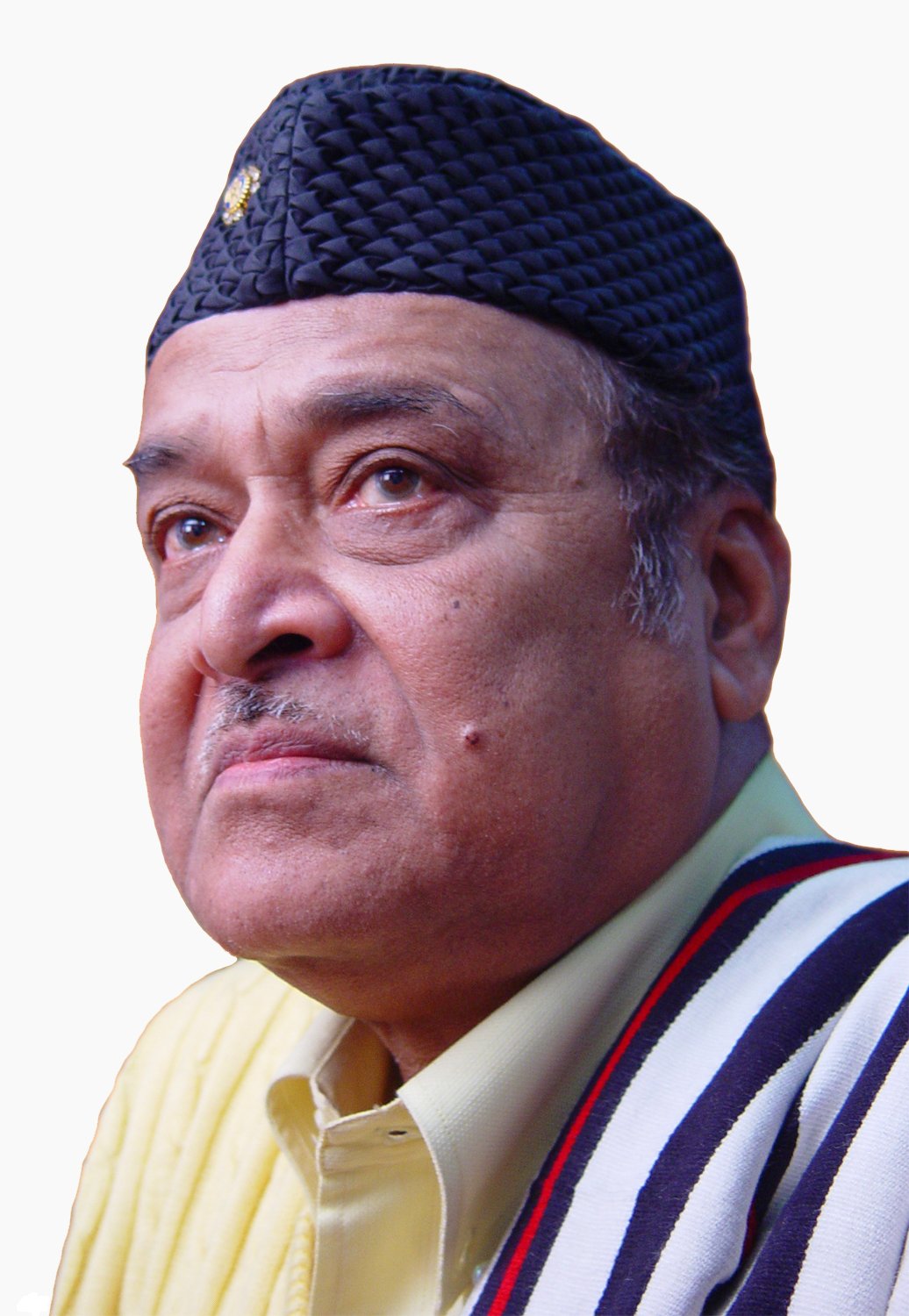
Bhupen Hazarika was an Indian playback singer, lyricist, musician, poet, actor, filmmaker and politician from Assam, widely known as Sudha Kontho.
Bhupen Hazarika (Assamese: [bʱupɛn ɦazɔɹika] (8 September 1926 – 5 November 2011) was an Indian playback singer, lyricist, musician, poet, actor, filmmaker and politician from Assam, widely known as Sudha Kontho (meaning cuckoo, literally "nectar-throated"). His songs were written and sung mainly in the Assamese language by himself, are marked by humanity and universal brotherhood and have been translated and sung in many languages, most notably in Bengali and Hindi.
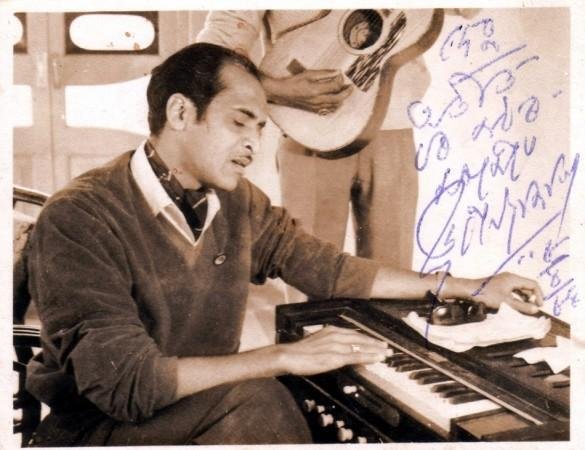
His songs, based on the themes of communal amity, universal justice and empathy, are especially popular among the people of Assam, West Bengal and Bangladesh. He is also acknowledged to have introduced the culture and folk music of Assam and Northeast India to Hindi cinema at the national level. He received the National Film Award for Best Music Direction in 1975, the Sangeet Natak Akademi Award (1987), Padma Shri (1977), and Padma Bhushan (2001),Dada Saheb Phalke Award (1992), the highest award for cinema in India and Sangeet Natak Akademi Fellowship (2008), the highest award of the Sangeet Natak Akademi.
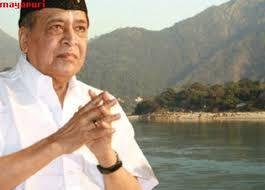
He was posthumously awarded both the Padma Vibhushan, India's second-highest civilian award, in 2012, and the Bharat Ratna, India's highest civilian award, in 2019.Hazarika also held the position of the Chairman of the Sangeet Natak Akademi from December 1998 to December 2003.
S. D. Burman
Sachin Dev Burman (1 October 1906 – 31 October 1975) was an Indian music director and singer. A member of the Tripura royal family, he started his career with Bengali films in 1937. He later began composing for Hindi movies and became one of the most successful and influential Bollywood film music composers. Burman composed the soundtracks for over 100 movies, including Bengali films and Hindi. Apart from being a versatile composer, he also sang songs in the light semi-classical and folk style of Bengal. His son, R. D. Burman, was also a celebrated music composer for Bollywood films.
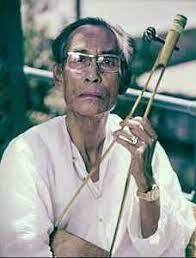
Burman's compositions were sung by the leading singers of the era, including Kishore Kumar, Lata Mangeshkar, Mohammed Rafi, Geeta Dutt, Manna Dey, Hemant Kumar, Asha Bhosle, Shamshad Begum, Mukesh and Talat Mahmood. As a playback singer, Burman sang 14 Hindi and 13 Bengali film songs.
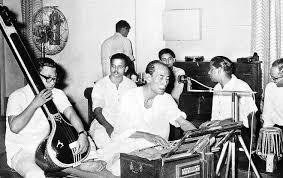
Burman started working as a radio singer on Calcutta Radio Station in the late 20s, when his work as a singer-composer was based on Bengali folk and light Hindustani classical music. Consequently, his compositions were mainly influenced by his huge repertoire of folk-tunes from present Bangladesh and later other parts of India and around the world. His first record was also released in 1932 (Hindustan Musical Product), with "Khamaj" (semi classical), "E Pathey
Aaj Eso Priyo" on one side and the folk "Dakle Kokil Roj Bihane" on the reverse side, on 78 rpm for Hindustan Records. In the following decade, he reached his peak as a singer, cutting as many as 131 songs in Bengali, and also sang for composers like Himangsu Dutta , RC Boral , Nazrul Islam, Sailesh Das Gupta and Subal Das Gupta . He also sang for Madhavlal Master and his son R.D. Burman .
In 1934, he attended the All India Music Conference, at the invitation of Allahabad University, where he presented his Bengali Thumri, all to an illustrious audience, with the likes of Vijaya Lakshmi Pandit and the inimitable Abdul Karim Khan of Kirana Gharana. Later in the year, he was invited to Bengal Music Conference, Kolkata, which was inaugurated by Rabindranath Tagore, here again he sang his Thumri, and was awarded a Gold Medal.
As a music composer, he started with the Bengali plays Sati Tirtha and Janani, and eventually gave his first score in the film Rajgee. In 1937, his second film Rajkumarer Nirbashan (1940) became a hit. He gave music in Bengali films such as Protishodh (1941), Abhoyer Biye (1942) and Chaddobeshi (1944) and only one Bengali film in 1969/70 after he permanently moved to Mumbai in 1946.
He composed for over 20 Bengali films and 89 Hindi films in all. He made his film debut singing in Yahudi ki Ladki (1933) but the songs were scrapped and re-sung by Pahari Sanyal. His first film as a singer was finally Sanjher Pidim (1935).
1940s
In 1944, Burman moved to Mumbai, at the request of Sasadhar Mukherjee of Filmistan, who asked him to give score for two Ashok Kumar starrers, Shikari (1946) and Aath Din, but his first major breakthrough came the following year with the company's Do Bhai (1947). The song Mera Sundar Sapna Beet Gaya sung by Geeta Dutt was his breakthrough song into the film industry. In 1949 came Shabnam, his biggest hit yet with Filmistan, especially noticeable for its multi-lingual hit song Yeh Duniya Roop ki Chor, by Shamshad Begum, which became a rage in those days.
1950s
Disillusioned with the materialism of Mumbai, Burman left the Ashok Kumar starred Mashaal (1950) incomplete and decided to board the first train back to Calcutta. Fortunately, he was dissuaded from doing so.
In the 1950s, Burman teamed up with Dev Anand's Navketan Films to create musical hits like Taxi Driver, Nau Do Gyarah (1957) and Kala Pani (1958). In addition, he gave music for Munimji (1955) and Paying Guest (1957). His songs sung by Kishore Kumar and Mohammed Rafi became popular. Burman composed the music for Afsar (1950). With the success of their second film Baazi (1951), he made it to the top and a long association with Navketan and Dev Anand was on its way.
Baazi's jazzy musical score revealed a new facet of singer Geeta Dutt, who was mainly known for melancholy songs and bhajans. One song from the film stood out – "Tadbeer Se Bigdi Hui Taqdeer", a ghazal that was occidentalised into a seductive song.[citation needed] The Jaal song "Yeh Raat Yeh Chandni" sung by Hemant Kumar is an all-time great classic.The song "Thandi Hawain" from the film Naujawan (1951) sung by Lata Mangeshkar was one of his first major hits. It made Lata very famous as also poet Sahir.
He also wrote music for Guru Dutt's films Pyaasa (1957) and Kaagaz Ke Phool (1959). The soundtracks of Devdas (1955), House No. 44 (1955), Funtoosh (1956), and Solva Saal (1958) were other S. D. Burman hits. In 1959 came Sujata, and S. D. created magic again with "Jalte hai Jiske Liye" by Talat Mahmood.
When Guru Dutt made comparatively light-weight films like Baazi and Jaal (1952), Burman reflected their mood with compositions like "Suno Gajar Kya Gaye" or "De Bhi Chuke Hum" and when Guru Dutt made his sombre masterpieces–Pyaasa (1957) and Kaagaz Ke Phool (1959), he was right on target with "Jinhe Naaz Hai Hind" and "Waqt Ne Kiya Kya Haseen Sitam." In 2004, the soundtrack of Pyaasa was chosen as one of "The Best Music in Film" by Sight & Sound, the British Film Institute magazine.
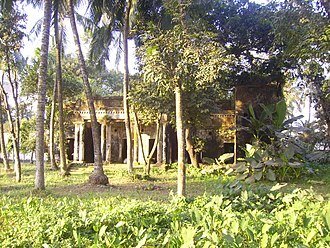
In 1958, S. D. Burman gave music for Kishore Kumar's house production Chalti Ka Naam Gaadi. The same year, he was awarded the Sangeet Natak Akademi Award for his compositions in Sujata and remains the only music director to have won this prestigious award. S. D. Burman often took inspiration from folk music, Hindustani classical music as well as the more mundane day to day sounds of life. For example, in a later interview, he discussed how he had composed the Kala Pani tune for the Majrooh Sultanpuri / Md. Rafi / Dev Anand song "Hum bekhudi mein tum" based upon the Hindustani Raga "Raag Chayyanat" and the Muslim Muezzin's call for prayers that one hears daily near a mosque.
1960s
Early on in his career, Burman refused to allow his voice to be lip-synced on film by actors;as a result, even later on, in Hindi cinema, his thin yet powerful voice was often used as bardic commentary to haunting results, as in "O Re Majhi Mere Sajan Hai Us Paar" from Bandini (1963), "Wahan Kaun Hai Tera" from Guide (1965), and "Saphal Hogi Teri Aradhana" from Aradhana (1969), for which he received the National Film Award for Best Male Playback Singer in 1970.
Ill health caused a slump in his career in the early 1960s, but he gave many hit films in the late 1960s. In 1961, Burman and Lata Mangeshkar came together during the recording of R.D. Burman's first song for the movie Chhote Nawab (1961). They reconciled their differences and started working again in 1962.
The Dev Anand-S. D. Burman partnership, under the Navketan banner, continued to churn out musical hits like Bombai Ka Babu (1960), Tere Ghar Ke Samne (1963), Guide (1965) and Jewel Thief (1967). In 1963, he composed the soundtrack of Meri Surat Teri Aankhen (1963), in which Manna Dey sang the song "Poocho Na Kaise Maine" in raga Ahir Bhairav. This song was inspired by the song "Arun kanti ke go yogi", a masterpiece that was created by Bidhrohi Kabi Kazi Nazrul Islam and a Ustad Mushtaq Hussain Khan's Khayal which was based on raga Ahir bhairav (morning ragaa). That movie also had a song "Nache Mon Mora Magan", sung by Mohammad Rafi; these became landmarks in Hindi film songs.
Other S. D. Burman hits from this period were Bandini (1963), Ziddi (1964), and Teen Devian (1965). In Bandini, Sampooran Singh (well known as Gulzar), made his debut as a lyricist with the song "Mora Gora Ang Lai Le", though the other songs were written by Shailendra. Guide (1965) starring Dev Anand, was probably the best[citation needed] of his work during the time with all the songs super-hits as well as the film; however, it did not receive the Filmfare Award in the best music director category for that year, which remained always a discussion among the Bollywood film pandits.
Aradhana (1969) is considered another landmark score in Bollywood history. The music of the movie shaped the careers of singer Kishore Kumar, lyricist Anand Bakshi and filmmaker Shakti Samanta. According to the director Shakti Samanta, originally, Mohammed Rafi was supposed to have sung all the songs in the film (he sang only two song), but he was on 2 month long tour and they didn't want to wait for 2 months. So, he suggested Burman to use Kishore Kumar instead as Rajesh Khanna was a newcomer and he agreed. All the songs became chartbuster which made Kishore Kumar an overnight sensation.
Reference For the song "Mere Sapno ki raani", Sachin Dev made R. D. play the mouth organ.[citation needed] Dev Anand and S. D. Burman continued their musical partnership in Prem Pujari
Mehdi Hassan
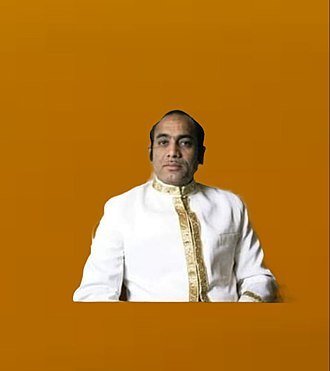
Mehdi Hassan Khan NI PP HI (Urdu: مہدی حسن خاں) 18 July 1927 – 13 June 2012) was a Pakistani ghazal singer and playback singer for Lollywood. Widely considered one of the greatest and most influential figures in the history of ghazal singing, Hassan is referred to as the "Shahenshah-e-Ghazal" (Emperor of Ghazal). Known for his "haunting" baritone voice, Hassan is credited with bringing ghazal singing to a worldwide audience. He is unique for his melodic patterns and maintaining integrity of the ragas in an innovative way.
Born into a family of Kalawant musicians, Hassan was naturally inclined towards music from a young age. He influenced generations of singers from diverse genres, from Jagjit Singh to Parvez Mehdi.He earned numerous awards and accolades during his lifetime and remained a leading singer of Pakistani film industry along with another contemporary playback singer Ahmed Rushdi, and it is estimated that Hassan sang for over 300 films during his career. For his contributions to the arts, Hassan was awarded with the Nishan-e-Imtiaz, Tamgha-e-Imtiaz, Pride of Performance, and Hilal-e-Imtiaz by the Government of Pakistan.
In 1957, Hassan was again given the opportunity to sing on Radio Pakistan, primarily as a thumri singer and later as a ghazal performer, which earned him recognition within the musical fraternity. He had a passion for Urdu poetry, and therefore, he began to experiment by singing ghazals on a part-time basis. He cites radio officers Z.A. Bukhari and Rafiq Anwar as additional influences in his progression as a ghazal singer. He first sang on Radio Pakistan in 1952.
His first film song was "Nazar Milte Hi Dil Ki Bat Ka Charcha Na Ho Jaye" film Shikhar in 1956. This song was written by poet Yazdani Jalandhari and its music was composed by Asghar Ali M. Husain. In 1964, his ghazal for a film Farangi, "Gulon mein rang bharay, baad-e-naubahar chale" written by renowned Pakistani poet Faiz Ahmed Faiz and composed by Rasheed Attre, gave him a major breakthrough into the Pakistani film industry and he never looked back after that. Even the original ghazal poet Faiz Ahmed Faiz stopped reciting it in his 'mushairas' (poetry reciting events) and, instead, recommended that the audience ask Hassan to sing it for them because the poet jokingly used to say that the ghazal belonged to Hassan after its popularity.
In October 2010, HMV Label released "Sarhadein" in which his first and last duet song Tera Milna featuring Hassan and Lata Mangeshkar was released. This song was composed by Hassan and written by Farhat Shahzad. Hassan recorded it in Pakistan in 2009, and Mangeshkar later heard the track and recorded her part in India in 2010, and the song was later mixed for a duet. The same duet was also sung by Hassan and Noor Jehan.
Following a severe illness in the late 1980s, Hassan cut back on his singing, eventually stepping down from playback singing altogether.[18] Later, due to the severity of his illness, he completely departed from music.
Nusrat Fateh Ali Khan- Classical
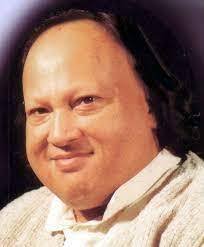 Ustad Nusrat Fateh Ali Khan PP (Punjabi: نصرت فتح علی خان; born Pervez Fateh Ali Khan; 13 October 1948 – 16 August 1997) was a Pakistani Punjabi singer, songwriter, and music director. He was primarily a singer of qawwali — a form of Sufi devotional music. Often referred to as "Shahenshah-e-Qawwali" (the King of Kings of Qawwali), he is considered by The New York Times to be the greatest Sufi singer in the Punjabi and Urdu languages and one of the greatest qawwali singers in history. He was described as the fourth greatest singer of all time by LA Weekly in 2016. He was known for his vocal abilities and could perform at a high level of intensity for several hours.Khan is widely credited with introducing qawwali music to international audiences.
Ustad Nusrat Fateh Ali Khan PP (Punjabi: نصرت فتح علی خان; born Pervez Fateh Ali Khan; 13 October 1948 – 16 August 1997) was a Pakistani Punjabi singer, songwriter, and music director. He was primarily a singer of qawwali — a form of Sufi devotional music. Often referred to as "Shahenshah-e-Qawwali" (the King of Kings of Qawwali), he is considered by The New York Times to be the greatest Sufi singer in the Punjabi and Urdu languages and one of the greatest qawwali singers in history. He was described as the fourth greatest singer of all time by LA Weekly in 2016. He was known for his vocal abilities and could perform at a high level of intensity for several hours.Khan is widely credited with introducing qawwali music to international audiences.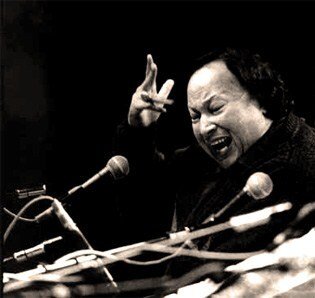
Born in Lyallpur (Faisalabad), Khan had his first public performance at the age of 15, at his father's chelum. He became the head of the family qawwali party in 1971, and brought his unique style of sargam, khayal, and rhythm to his family's legacy. He was signed by Oriental Star Agencies, Birmingham, England, in the early 1980s. Khan went on to release movie scores and albums in Europe, India, Japan, Pakistan, and the U.S.
He engaged in collaborations and experiments with Western artists, becoming a well-known world music artist. He toured extensively, performing in over 40 countries.[13] In addition to popularising qawwali music, he also had a big impact on contemporary South Asian popular music, including Pakistani pop, Indian pop, and Bollywood music.
Early life and career
Khan was born into a Punjabi Muslim family family in Lyallpur (modern-day Faisalabad), Punjab, Pakistan, in 1948. His family originates from Basti Sheikh Darvesh, who settled in Jalandhar, Punjab in present-day India.
His ancestors learned music and singing there and adopted it as a profession.[19] He was the fifth child and first son of Fateh Ali Khan, a musicologist, vocalist, instrumentalist, and qawwal. Khan's family, which included four older sisters and a younger brother, Farrukh Fateh Ali Khan, grew up in central Faisalabad.
The tradition of qawwali in the family had passed down through successive generations for almost 600 years. Initially, his father did not want Khan to follow the family's vocation. He had his heart set on Nusrat choosing a much more respectable career path and becoming a doctor or engineer because he felt qawwali artists had low social status. However, Khan showed such an aptitude for and interest in qawwali, that his father finally relented.
In 1971, after the death of his uncle Mubarak Ali Khan, Khan became the official leader of the family qawwali party and the party became known as Nusrat Fateh Ali Khan, Mujahid Mubarak Ali Khan & Party.
Khan's first public performance as the leader of the qawwali party was at a studio recording broadcast as part of an annual music festival organized by Radio Pakistan, known as Jashn-e-Baharan.
Khan sang mainly in Urdu and Punjabi and occasionally in Persian, Braj Bhasha, and Hindi. His first major hit in Pakistan was the song Haq Ali Ali, which was performed in a traditional style and with traditional instrumentation. The song featured restrained use of Khan's sargam improvisations.
Later career
In the summer of 1985, Khan performed at the World of Music, Arts and Dance (WOMAD) festival in London.He performed in Paris in 1985 and 1988. He first visited Japan in 1987, at the invitation of the Japan Foundation. He performed at the 5th Asian Traditional Performing Art Festival in Japan. He also performed at Brooklyn Academy of Music, New York, in 1989, earning him admiration from the American audience.
Khan, throughout his career, had great understanding with many south Asian singers such as Alam Lohar, Noor Jehan, A. R. Rahman, Asha Bhosle, Javed Akhtar, and Lata Mangeshkar.
In the 1992 to 1993 academic year, Khan was a Visiting Artist in the Ethnomusicology department at the University of Washington, Seattle, Washington, United States.
In 1988, Khan teamed up with Peter Gabriel on the soundtrack to The Last Temptation of Christ, which led to Khan being signed to Gabriel's Real World label. He would go on to release five albums of traditional qawwali through Real World, along with the more experimental albums Mustt Mustt (1990), Night Song (1996), and the posthumous remix album Star Rise (1997).
In 1989, commissioned by Oriental Star Agencies Ltd in Birmingham UK, Khan collaborated at Zella Recording Studios with composer Andrew Kristy and producer Johnny Haynes on a series of 'fusion' tracks which propelled Nusrat Fateh Ali Khan and Party into the Channel 4 Christmas Special of "Big World Café." While in the UK in 1989, Khan and party performed Sikh devotional music at a Sikh Gurdwara in Slough, continuing a tradition of Muslims performing hymns at Sikh temples.
Further to this in 1990, the BBC devoted an entire program on Network East to this collaboration, and Big World Café subsequently invited Khan, Andrew Kristy and violinist Nigel Kennedy to perform Allah Hoo live on the show. A live UK tour containing these new fusion tracks was made in 1990.
Khan's experimental work for Real World, which featured his collaborations with the Canadian guitarist Michael Brook, spurred on several further collaborations with a number of other Western composers and rock musicians. One of the most noteworthy of these collaborations came in 1995, when Khan grouped with Pearl Jam's lead singer Eddie Vedder on two songs for the soundtrack to Dead Man Walking.
Khan also provided vocals for The Prayer Cycle which was put together by Jonathan Elias, but died before the tracks could be completed. Alanis Morissette was brought in to sing with his unfinished vocals. In 2002, Gabriel included Khan's vocals on the posthumously released track "Signal to Noise" on his album Up.
Khan's album Intoxicated Spirit was nominated for a Grammy Award for Best Traditional Folk Album in 1997. That same year, his album Night Song was also nominated for a Grammy Award for Best World Music Album.
Khan contributed songs to, and performed in, several Pakistani films. Shortly before his death, he composed music for three Bollywood films, which includes the film Aur Pyaar Ho Gaya, in which he also sang for "Koi Jaane Koi Na Jaane" on-screen with the lead pair, and "Zindagi Jhoom Kar."
He also composed music for Kartoos where he sang for "Ishq Da Rutba", and "Bahaa Na Aansoo", alongside Udit Narayan. He died shortly before the movie's release. His final music composition for Bollywood was for the movie Kachche Dhaage where he sang in "Iss Shaan-E-Karam Ka Kya Kehna." The movie was released in 1999, two years after his death.
The two singing sisters of Bollywood, Asha Bhosle and Lata Mangeshkar sang for the songs he composed in his brief stint in Bollywood. He also sang "Saya Bhi Saath Jab Chhod Jaye" for Sunny Deol's movie Dillagi. The song was released in 1999, two years after Khan's death.
He also sang "Dulhe Ka Sehra" from the Bollywood movie Dhadkan which was released in 2000. Khan was used by Imran Khan to source funds for his Cancer Hospital as told by Appo G, his eldest of four sisters.
Khan contributed the song "Gurus of Peace" to the 1997 album Vande Mataram, composed by A. R. Rahman, and released to celebrate the 50th anniversary of India's independence.
As a posthumous tribute, Rahman later released an album titled Gurus of Peace which included "Allah Hoo" by Khan. Rahman's 2007 song "Tere Bina" for the film Guru was also composed as a tribute to Khan.